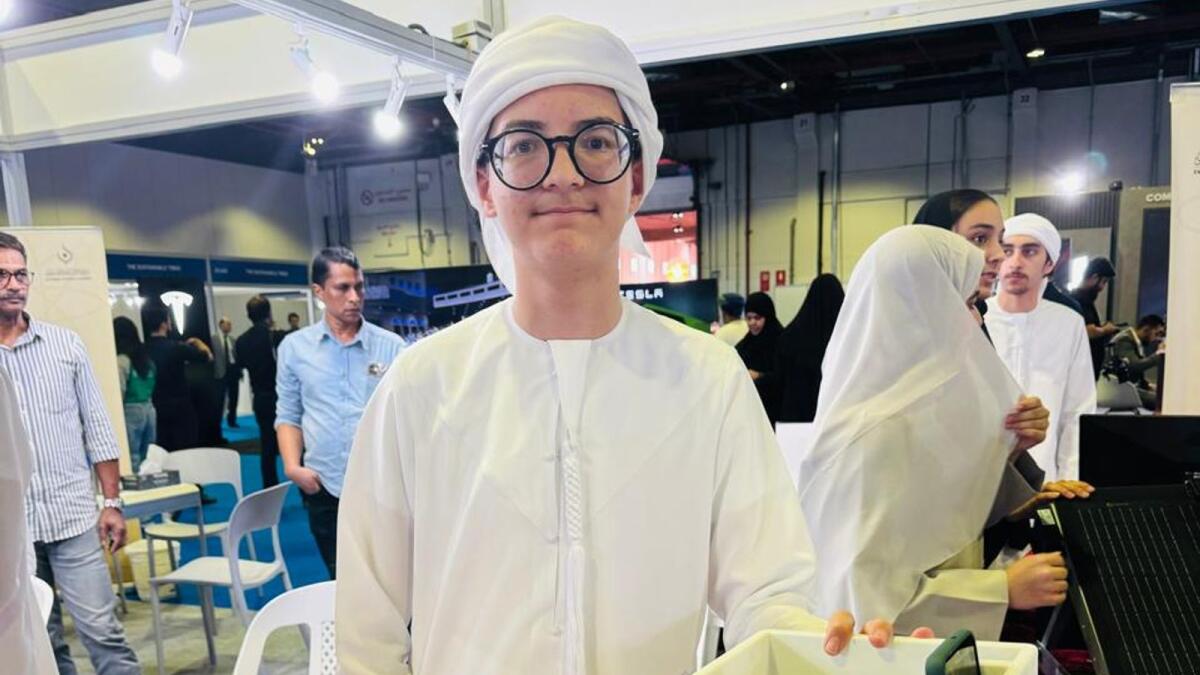Thirteen-year-old Hamdan Jumah Hassan Rahmah has created a unique shopping cart that can charge phones using kinetic energy. The cart, which is 3D printed, converts the energy produced when it is pushed into electric energy, which is stored in a battery attached to the cart. This energy can then be used to charge phones while shopping. Hamdan displayed his innovation at the Water, Energy, Technology, and Environment Exhibition (WETEX) in Dubai, where he was awarded a patent for his creation. He aims to refine the design and make it commercially available to the public.
WETEX, first organized in 1999, serves as a platform for showcasing the latest technological advancements in water, energy, environmental sustainability, and renewable energy. Hamdan acknowledges that there is still room for improvement in his cart design, such as enhancing the performance of the wheels and incorporating an anti-theft system. Another young innovator at the exhibition was seventeen-year-old Sultan AlZarooni, who developed a system to measure weather conditions and provide the appropriate amount of water to plants on his family’s banana farm. Sultan spent over a year testing the system before implementing it on the farm, aiming to save time and money for farmers.
Sultan, a member of the Emirates Science Club (ESC), has been refining his system based on his experiences and insights. He added a humidity sensor to the system to enhance its performance in irrigating specific plants efficiently. ESC, established in 1990, offers training programs for youth in various fields of science and technology, including robotics, 3-D printing, and carpentry, conducted by skilled engineers. Sultan, who has won international competitions with his project, aspires to make his prototype available to farmers after further testing and refining.
Thirteen-year-olds Manal Maher Albastaki and Fatma Mohammed Alfalasi also showcased their innovative project at WETEX, a smart solar panel that increases efficiency by removing heat from the panel. The girls reversed engineered a thermoelectric module placed under the solar panel to enhance its efficiency by 10%. This innovation allows companies to generate the same amount of solar energy using smaller panels, eliminating the need for large, cumbersome installations. Manal highlighted the potential benefits for companies to optimize their solar energy production with smaller, more efficient panels.
The young innovators at WETEX displayed a remarkable understanding of technology and environmental sustainability. Their creations not only demonstrate their creativity and ingenuity but also address practical challenges in various fields. As a part of the Emirates Science Club, these students have access to resources and mentorship that enable them to bring their ideas to life and make a positive impact on society. With continued support and opportunities for young innovators, the future of technology and sustainability looks promising with bright minds like Hamdan, Sultan, Manal, and Fatma leading the way.











